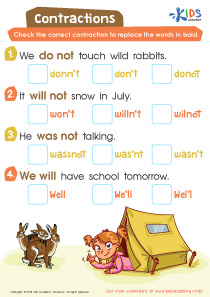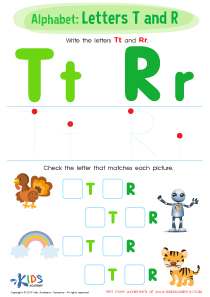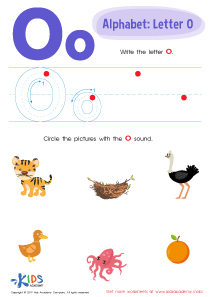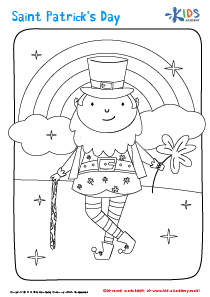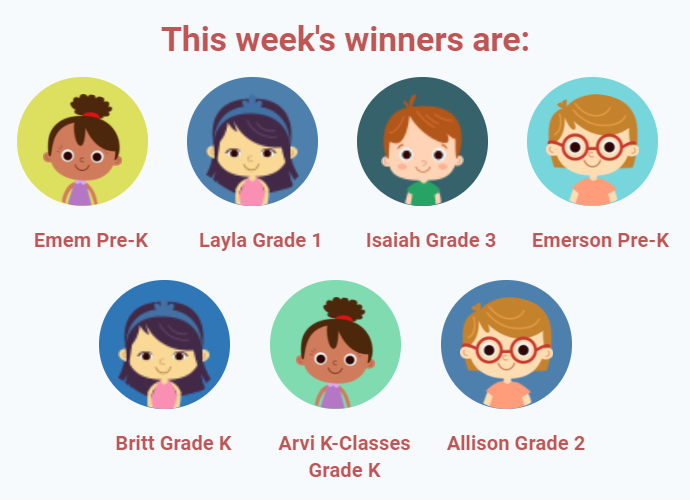Vocabulary Quizzes for Ages 4-5
12 results
12 filtered results
Clear all filters12 filtered results
-
From - To
Discover the joy of learning with our interactive assessment quizzes designed specifically for children Ages 4-5! These engaging quizzes not only check your child's vocabulary knowledge but also provide instant feedback to help them learn and improve. Tailored to the developmental stage of young learners, our quizzes make learning new words fun and accessible. Whether it's identifying objects, understanding simple instructions, or recognizing basic concepts, our vocabulary quizzes for Ages 4-5 are the perfect tool to enhance your child's language skills in an enjoyable and interactive way. Join us in fostering a love for words and language from an early age!
In the foundational years of a child's education, particularly around the ages of 4 to 5, the building blocks for future learning are laid down, with one of the core components being the development of a robust vocabulary. Our interactive quizzes on "Vocabulary for Ages 4-5" are meticulously designed to nurture this crucial skill, offering a unique blend of engagement, fun, and educational value that is tailored specifically to the needs and interests of young learners.
Understanding the pivotal role vocabulary plays in cognitive development and academic success, these quizzes are more than just educational tools; they are gateways to a world of knowledge and understanding for children. Engaging with "Vocabulary for Ages 4-5" empowers children to express themselves more clearly, enhances reading comprehension, and lays the groundwork for effective communication skills.
Why are these interactive quizzes so beneficial for children in their studies? Firstly, they make learning enjoyable. Children, especially at the tender age of 4 to 5, learn best when they are having fun. The vibrant colors, playful sounds, and interactive elements of the quizzes captivate their attention, making the learning process feel like play. This approach ensures that children associate learning with positive emotions, fostering a love for education that can last a lifetime.
Secondly, the quizzes are designed to cater to individual learning paces. Recognizing that every child is unique, our "Vocabulary for Ages 4-5" quizzes allow children to learn at their own speed. With instant feedback on their answers, children can understand their mistakes and learn from them immediately, promoting a growth mindset and encouraging self-improvement.
Moreover, these quizzes offer a wide range of vocabulary topics, ensuring comprehensive coverage of essential words that children in this age group should be familiar with. From everyday objects and actions to emotions and descriptions, the quizzes cover a spectrum of themes that enrich a child's language skills, broadening their understanding of the world around them.
Parental involvement is another crucial aspect that our quizzes facilitate. Parents can participate in or observe their child's learning, enabling them to track progress, identify areas that may require additional support, and reinforce learning outside the quiz environment. This collaborative approach not only strengthens the child's vocabulary but also fosters a supportive learning environment at home.
Furthermore, the use of interactive quizzes introduces children to the concept of technology as a tool for learning, preparing them for the digital age. In a world where technology plays a significant role in education, familiarizing young learners with digital learning platforms can enhance their adaptability and tech-savviness.
In conclusion, our interactive quizzes on "Vocabulary for Ages 4-5" are more than just an educational resource; they are a comprehensive learning experience that nurtures young minds, instills a love for learning, and lays a solid foundation for future academic success. Through playful engagement, personalized learning journeys, and the encouragement of parental involvement, these quizzes stand as a testament to how interactive learning can transform the educational landscape for young learners.
